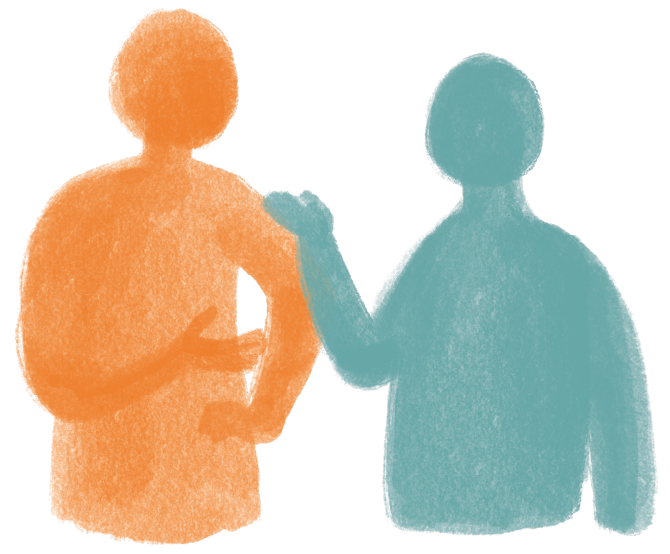Social
Research suggests that having close ties to friends and family, and taking part in social activities, can help people maintain their thinking and memory skills better in later life and may slow down these types of declines.

Being around friends and family who understand you and care about you can be a great support. Friends and family might be able to make things a little easier for you practically and emotionally, and hopefully provide a few laughs on the way.
Sometimes, talking to someone who knows a lot about feelings and thoughts, like a counsellor, can help when things get a bit tough.
If you’re having a hard time, it’s good to talk to someone who can help you understand your feelings. Taking time to process your emotions with support can prevent feeling too overwhelmed. Find someone you trust to talk to, like a counsellor or therapist. Your doctor can help you find someone, or you can look for accredited counsellors through the BACP register.
Connecting with others who are having experiences like yours can help. You are not the only one and you can help each other find what helps you.
Being around people who’ve gone through similar experiences can really make a difference. It makes you feel less alone and you can learn from each other. There is often a strong sense of community within groups who understand each other’s challenges.
Many organisations offer support from people who’ve been there, whether it’s for HIV or memory issues. Check out our Community Support page for more info on these services.
Joining community groups around activities you enjoy is a great way to meet new people and find hobbies you enjoy.
If you think you’d benefit from getting out and about a bit more, it’s worth speaking to local HIV charities or your HIV care team about things going on in your local area. If this is something that makes you anxious, many organisations will have a person you can meet first who will slowly help get you involved.
Visit our community support page